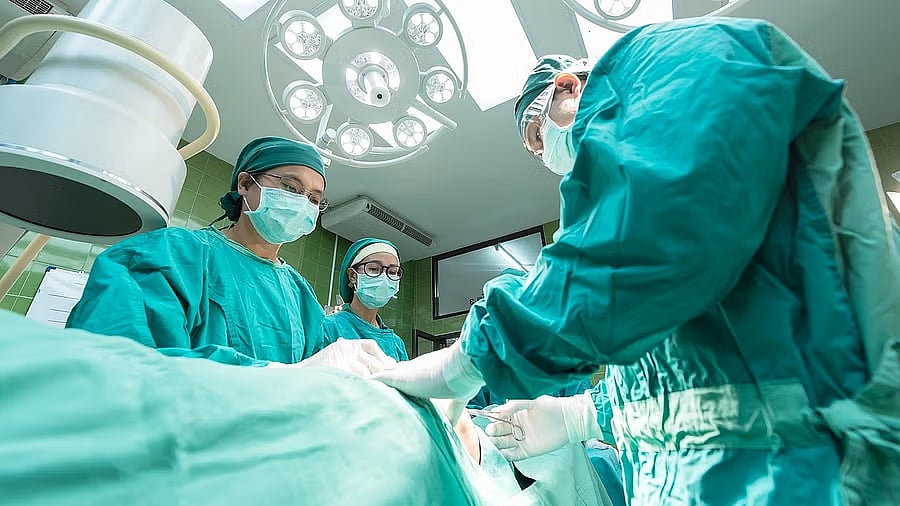
Representative image of a surgery.
Credit: Pixabay Photo
New Delhi: The number of deceased organ donors was a paltry 1,128 in 2024 as against over 15,000 living donors and 62 per cent of the deceased donors came from just six southern states, according to the latest organ donation statistics released by the Union Health Ministry on Saturday.
Though over 18,900 organ transplants were performed last year – the highest ever recorded in a single year – poor responses from the families of brain stem dead patients once again flagged the key problem associated with organ donation in India nearly three decades after such transplants were made legal.
Out of 1,128 deceased donors, over 700 came from six southern states with Tamil Nadu (268), Telangana (188) and Karnataka (162) topping the list.
Maharashtra (172) and Gujarat (119) are the other two states with significant contribution in the deceased donor category.
“Every year thousands of people wait for organ transplants. Despite the urgent need, there remains a significant gap between the number of patients waiting for transplants and the number of available donors,” Union Health Minister J P Nadda said here at an event to mark 15th Indian Organ Donation Day.
“This gap is not due to lack of willingness but often due to lack of awareness and hesitation rooted in the myths and misconceptions,” he said.
Deceased donation in India has increased over the last two decades albeit slowly. But despite a huge burden of road traffic accident related head injuries in the country, the uptake (of deceased organs) has been very slow.
An official said India’s organ donation rate remained under 1 per cent relative to the population. Over 63,000 individuals currently need kidney transplants, and around 22,000 require liver transplants.
Against such demands, there were just 13,476 kidney transplants and 4,901 liver transplants last year out of a total of 18,911 organ transplants. In addition, 253 heart and 220 lung transplants were also performed.
“Brain stem death testing is still viewed with doubt and apprehension by many in the medical community leading to needless and damaging controversies,” three Indian doctors have written recently in a review of the organ donation practices in the country.
“There is an urgent need to reiterate the legal validity of brain stem death testing through educational, legislative and judicial measures, so that hospitals, medical professionals, transplant coordinators and grief counselors are reassured that they will not be needlessly persecuted or even prosecuted,” they wrote in the Journal of Clinical and Experimental Hepatology.
Health Minister Nadda said the gap between requirement of organs and available donors might be bridged with greater awareness, more public dialogues, timely consent from families and to have a robust system to support diseased donation.
“Each organ donor is a silent hero. One person can save up to eight lives by donating heart, lungs, liver, kidneys, pancreas and intestines,” he said.
